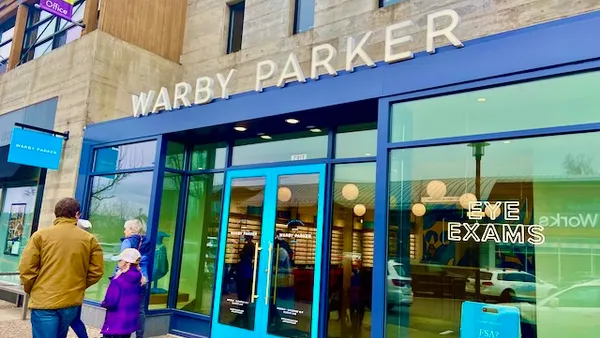Dive Brief:
- Deutsche Bank raised "concerns" last week that Neiman Marcus breached the terms of its asset-based credit line as it seeks a financing package to help it reorganize in bankruptcy.
- According to the bank, which is an administrative agent on the retailer's ABL, an initial budget tied to Neiman's bankruptcy loan (know as "debtor-in-possession" financing) "contained material errors undermining key assumptions" that could impede the retailer's ability to repay its loan.
- At issue is the value of Neiman's inventory, which Deutsche said in a court filing was $159 million less than the initial budget within a week of the retailer's Chapter 11 filing. Neiman responded in a filing Monday that the company's business had outperformed the initial budget and it had more cash than expected. "To be clear, no breach has occurred," attorneys for Neiman said in the filing.
Dive Insight:
Retailers in bankruptcy take on DIP financing as a matter of course. It's a routine tool, but absolutely crucial for any company that wants to preserve its value and operations in bankruptcy, whether to reorganize or sell itself. The DIP financing makes it possible to continue buying inventory, pay rent, keep employees and so forth.
For retailers, DIPs typically take the form of an ABL and are most often secured primarily with a company's inventory. The amount a company can borrow is based on what that inventory could fetch in liquidation sales. Setting borrowing limits around liquidation value assures lenders that, if a company fails to reorganize in bankruptcy or make enough money from operations to repay its loan, then the loan can still be repaid by liquidating the retailer's inventory and other assets.
There is a science to this, carefully worked out over decades by large liquidation firms, which can bring reams of data to the process based on thousands of store liquidation sales around the country. The coronavirus pandemic has thrown that process into chaos, adding deep uncertainty to the value of inventory in a world where customers may well approach going-out-of-business sales quite differently than they have in any other era.
Deutsche Bank said that Neiman's borrowing base, which defines how much the company can borrow under its loan terms based on its inventory value, was negative $11 million, when the retailer had initially budgeted it to be $39 million.
"This unexpected diminution of the ABL Lenders' negotiated protections is particularly concerning to the ABL Agent [i.e., Deutsche Bank] in light of the ongoing COVID-19 crisis that continues to shutter [Neiman's] stores and erode the value of their inventory — the ABL Lenders' primary collateral," attorneys for the bank said.
Neiman, meanwhile, says it has more cash than expected and, while it has sold off more inventory than planned (which could have affected the borrowing base), it intends to use the sales proceeds to buy new inventory "as vendors previously unwilling to ship goods to the Debtors [i.e., Neiman Marcus] have now resumed sales and started replenishing the Debtors' inventory," attorneys for the retailer said.
Deutsche Bank is seeking to protect its rights through the bankruptcy case. The concerns it raises about Neiman's compliance with the loan could have major implications. Again, DIP loans are crucial for financing a retailer through a reorganization process, which Neiman has set its sights on with a pre-negotiated plan with lenders that would give much-needed relief to its balance sheet. But first, it has to make it through the court process intact, and to do that it needs to be able to fund its operations.














